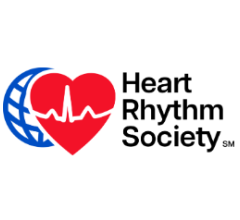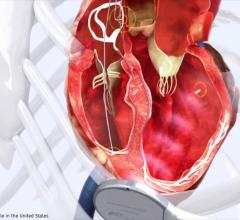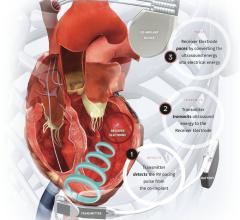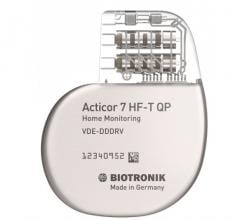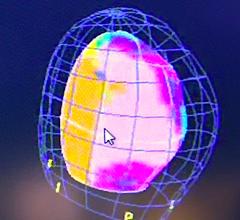September 30, 2013 — Medtronic Inc. announced clinical trial results showing that heart failure patients treated with its AdaptivCRT feature experienced a nearly 50 percent reduction in atrial fibrillation (AF) risk. Pioneered by Medtronic, the AdaptivCRT technology is a feature on certain cardiac resynchronization therapy-defibrillators (CRT-Ds) that continually adjusts therapy to a patient's natural heart rhythms and minimizes the amount of unnecessary right ventricular (RV) pacing. The results were presented as a late breaking clinical trial at the Heart Failure Society of America's 17th Annual Scientific Meeting.
While CRT has proven to improve heart failure-related symptoms, reduce heart failure hospitalizations and reduce mortality in select heart failure patients, some do not fully respond to the therapy. Heart failure is a progressive disease in which patients are more likely than the general population to develop AF1. There is a direct relationship between heart failure symptoms (as classified by New York Heart Assn., NYHA, status) and prevalence of AF, progressing from 4 percent in those patients who are asymptomatic (NYHA Class I) to 40 percent in those who are NYHA class IV. Previous research has shown that minimizing the amount of unnecessary RV pacing reduces AF risk.
Because AdaptivCRT technology utilizes the heart's natural rhythm to continuously adjust therapy, patients in the study who received AdaptivCRT experienced a 34 percent reduction in right ventricular pacing compared to conventional CRT. Long-term study outcomes show patients receiving the AdaptivCRT technology were at a 46 percent lower risk of spending 48 consecutive hours or more in AF compared to conventional CRT patients.
Earlier research showed that the use of the AdaptivCRT feature improves heart failure patients' response rate to cardiac resynchronization therapy, resulting in a projected 21 percent reduction in overall heart failure hospitalizations within the first year after implant, as compared to historical CRT trials. The presentation also reinforced the safety and effectiveness of the AdaptivCRT feature.
"The AdaptivCRT technology is a novel approach to CRT-D that continually and automatically adjusts the therapy to the heart rhythm for each individual patient," said David Steinhaus, M.D., vice president and general manager, heart failure and medical director for the cardiac rhythm disease managements business at Medtronic. "The results of the Adaptive CRT trial will be significant as the baby boomer population ages and becomes more vulnerable to heart failure and associated conditions such as atrial fibrillation."
The AdaptivCRT algorithm is included in the Medtronic Viva portfolio of CRT-D devices, which have been available in the United States since May 2013 and in Europe since 2012.
For more information: www.medtronic.com


 July 21, 2025
July 21, 2025 
